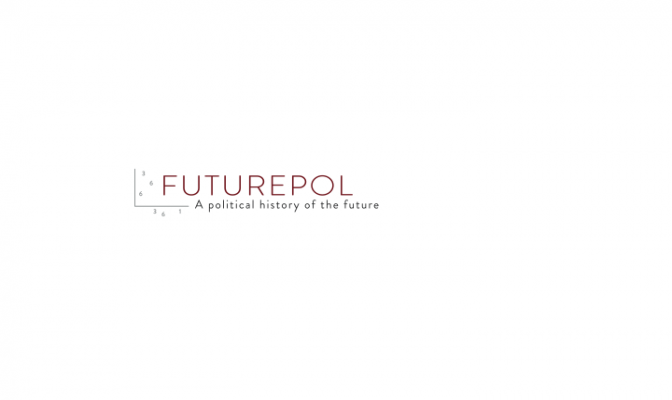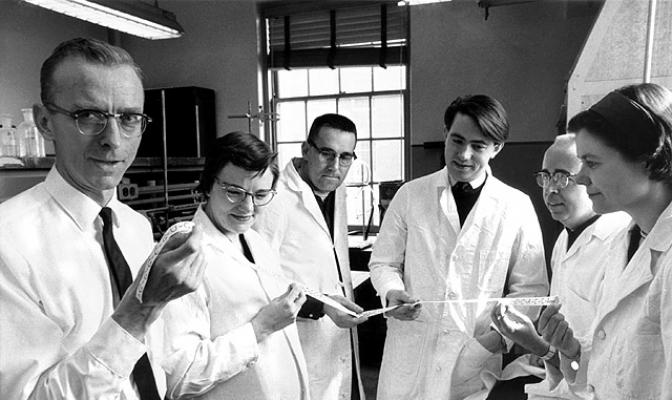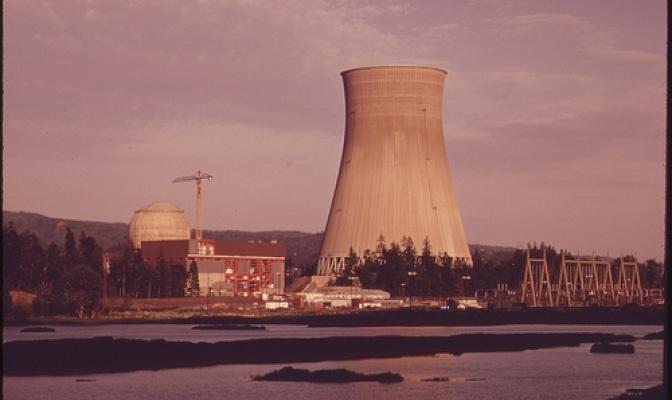Publication - Governing the Future

 Logo Futurepol
Logo Futurepol
Jenny Andersson has published together with Anne-Greet Keizer in History and Technology an article comparing the Swedish and Dutch experiences regarding the setting of institutions dedicated to the long term.
Citation: Jenny Andersson, Anne-Greet Keizer, Governing the future: science, policy and public participation in the construction of the long term in the Netherlands and Sweden, History and Technology, 2014, Vol. 30, iss. 1-2, p. 104-122.
The article can be dowloaded on the publisher's website here
Abstract:
This paper is a historical study of two institutions devoted to the problem of the future – the Dutch WRR (the Scientific Council for Government) and the Swedish Secretariat for Futures Studies – both created in 1972. While there is a growing interest in the social sciences for prediction, future imaginaries and the governance of risk, few studies have examined historically the integration of the category of the ‘future’ or the ‘long term’ in political systems in the postwar years, a period in which this category took on specific meaning and importance. We suggest that governing the long-term posed fundamental problems to particular societal models of expertise, decision-making and public participation. We argue that the scientific and political claim to govern the future was fundamentally contested, and that social struggle around the role and content of predictive expertise determined how the long term was incorporated into different systems of knowledge production and policy-making.
Discover all Futurepol's publications on the dedicated webpage
The Futurepol team

 © MaRS Photo Sol Goldberg
© MaRS Photo Sol Goldberg
Futurepol: new recruitments and new research.
New members have recently joined the Futurepol project at Sciences Po.
Sibylle Duhautois has been recruited as a research assistant to explore the UNESCO archives and contribute to the analysis of the role of this multilateral institution in the global governance of futurology and prediction.
Vitezslav Sommer joined Futurepol as a Junion Researcher. He is currently developing his research on futurology and its actors in Czechoslovakia in the years 1960-1980.
Pauline Prat, who already joined the team in 2012 as a scientific assistant, is starting her post-doctoral research on the bureaucratic production of the future in France.
They joined Jenny Andersson and Egle Rindzeviciute on the projet. The Futurepol team now stands at five members who bring different insights and expand the scope of the Futurepol research by exploring new countries, institutions and actors of the governance of the future.
Activities

 ©Rosemary
©Rosemary
Varsovie - 12-13rd June 2014
Vitezslav Sommer will participate to the annual conference of the Imre Kertész Kolleg Jena entitled "State Repression in Socialist Central Europe. Comparative Approaches".
New York - 16th May2014
Vitezslav Sommer participates to the workshop "Malinowski’s Children: East Central European “Betweenness" and "Twentieth-Century Social Science" organized at the The Heyman Center for Humanities, Columbia University, New York. He will present a paper entitled "The Coming of Communist Post-Industrial Society: Radovan Richta, “Scientific and Technological Revolution” and Global Futures".
Paris - 11th February 2014
Jenny Andersson and Pauline Prat are invited to give a talk at the seminar organized by the Secrétariat Général de la Modernisation de l'Action Publique "Design, prospective, quels horizons pour la modernisation de l'action publique ?"
Boston - 21-24th November 2013
Vitezslav Sommer presents at the45th ASEEES Annual Conventiona paper entitled "Science, Technology and Socialist Future: Czechoslovak 'Scientific and Technological Revolution' Between Marxist Theory and Social Scientific Expertise".
Bordeaux - 4-7th September 2013
Jenny Andersson and Pauline Prat will participate to the General Conference of the European Consortium for Political Research (ECPR) with a paper entitled "The bureaucratic production of futures in France from the Plan to the regulatory state".
Paris - 10th and 11th July 2013
The Futurepol team will organize two panels at the12th congress of the French Political Science Association.
Jenny Andersson andSarah Gensburgerorganize the panelGouverner la mémoire, gouverner le futur. Nouvelles perspectives sur l'Etat à partir d'objet "marginaux".
Pauline Prat and Nicolas Rio organize another panel on Prospective et Action publique.
Stockholm - 22nd May 2013
The Institute for Future Studies at Stockholm invites Jenny Andersson to present the Futurepol project.
New York - 20th and 21st May 2013
Egle Rindzeviciute is invited to present a paper, co-written with Jenny Andersson, at the international workshop "The Rise of the Decision Sciences: Systems, Games, Rational Choice and Politics after 1945" organised by Nicolas Guilhot at CIRHUS, New York University.
Paris - 26th April 2013
Jenny Andersson and Egle Rindzeviciute participate to the seminar organized by the Centre de Scoiologie des Organisations at Sciences Po. They will present their ongoing works.
Moscow - 8th April 2013
Egle Rindzeviciute in invited to theGerman history institute in Moskow (DHI) to present her current research on nuclear winter.
Cambridge (US) - 3rd April 2013
In the context of a series of seminars on international and global history, The Weatherhead Center for International Affaires at Harvard University invites Jenny Andersson to give a lecture on her recent work "Forging the American Future: Forecasting from RAND to The Commission for the Year 2000".
Paris - 19th March 2013
Jenny Andersson is invited to the general seminar organized by the Centre d'études européennes to present her work with Anne-Greet Keizer on the swedish and the dutch cases. Her presentation is entitled "Governing the Future. A comparative study of institutions of long term governance in Sweden and in the Netherlands".
Futurepol Seminar

 US National Archives
US National Archives
Monday, 18th March 2013 - 12:30-14:30
The Emergence of 'Relevant Knowledge' in Environmental Predictions and Global Change
Sverker Sörlin (KTH Royal Institute of Technology)
Paul Warde (University of East Anglia)
Paul N. Edwards will introduce the discussion
Sciences Po - Room J211 - 13, rue de l'Université - 75007 Paris
registration: pauline.prat@sciences-po.org
Sverker Sörlin is Professor of Environmental History in the Division of History of Science and Technology at the Royal Institute of Technology, Stockholm. His current research projects encompass the role of models in climate science and policy; historical images of Arctic futures; the role of industrial research institutes in changing Swedish and European research- and innovation landscapes. Another interest is in the history of landscapes. Among his books are Sustainability – the Challenge (1998) and Narrating the Arctic (2002, with M. T. Bravo). He co-edited with Paul Warde Nature’s End. History and the Environment (Palgrave Macmillan, 2009).
Paul Warde is reader of Environmental and Economic history at the University of East Anglia. He works on the environmental, economic and social history of early modern and modern Europe. His interests focus in particular upon the use of wood as a fundamental resource in pre-industrial society; the long-term history of energy use and its relationship with economic development, and environmental and social change; the history of prediction and modeling in thinking about the environment; and the development of institutions for regulating resources and welfare support. He will soon publish The Future of Nature. Documents of Global Change (Yale University Press, In Press).
Paul N. Edwards is Professor in the School of Information and the Department of History at the University of Michigan. His research focuses on the history, politics, and cultural aspects of computers, information infrastructures, and global climate science. He published A Vast Machine: Computer Models, Climate Data, and the Politics of Global Warming (MIT Press, 2010).
Nuclear Futures

 Trojan nuclear plant at Ranier, 1973 - US National Archives
Trojan nuclear plant at Ranier, 1973 - US National Archives
Nuclear Futures
Tuesday, 12th February 2013 - 14:30-17:30
With
- Soraya Boudia (Université Paris-Est Marne-la-Vallée)
Soraya Boudia is Professor of Sociology at the University Paris-Est Marne-la-Vallée. Former Director of the Curie Museum in Paris (1999-2003) and Professor of STS at the University of Strasbourg, her main area of research has been the history of radioactivity and its applications. She currently studies the global expertise and regulation of nuclear risks and environmental hazards. she published among others Patrimoine, savoirs et communautés savantes, (Ed. with A. Rasmussen and S. Soubiran, Presses Universitaires de Rennes, 2009); Marie Curie et son laboratoire : sciences et industrie de la radioactivité en France (Éditions des archives contemporaines, 2001).She will edit in 2013 with Nathalie Jas, Toxic World. Toxicants, Health and Regulation in the XXth Century (Pickering and Chatto, forthcoming).
- Gabrielle Hecht (University of Michigan)
Gabrielle Hecht is Professor of History at the University of Michigan. She is the author of Being Nuclear: Africans and the Global Uranium Trade (MIT Press, 2012) and of The Radiance of France: Nuclear Power and National Identity after World War II (MIT Press, 1998) which has been reedited in 2009 and translated in 2004 (Le rayonnement de la France: Énergie nucléaire et identité nationale après la seconde guerre mondiale. La Découverte, 2004).
- Luis Aparicio (Andra)
Luis Aparicio holds a PhD in Science and Technology studies from the University of Strasbourg and the University of Vienna. Since 2008, he is in charge of Social Sciences and Humanities at the R&D Division of the French Radioactive Waste Management Agency (Andra). He has edited the book Making nuclear waste governable. Deep underground disposal and the challenge of reversibility (Andra/Springer, 2010).
Sciences Po - salle Jean Monnet - 56, rue Jacob 75006 Paris
registration: pauline.prat@sciences-po.org









